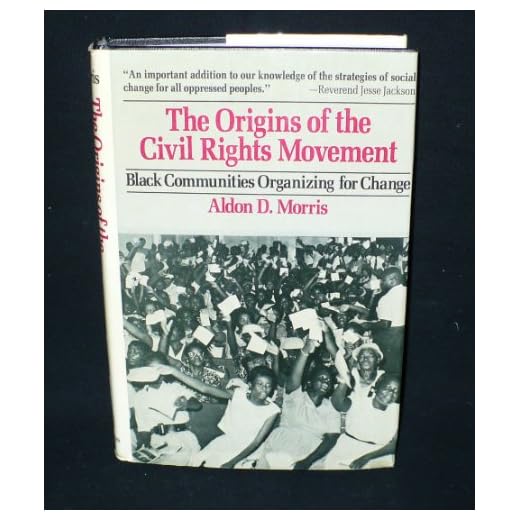

While many individuals have been honored for their contributions to social justice, one notable figure did not receive this prestigious honor. The individual known for her courageous stance in the face of racial segregation was recognized globally through various accolades but did not have the distinct honor of being awarded this specific recognition for her efforts.
This leader’s actions sparked a pivotal movement in American history, and her legacy continues to inspire generations. She is celebrated in numerous ways, from monuments to educational programs, yet the absence of this specific accolade remains a point of discussion among historians and activists alike.
For those interested in civil rights history, exploring her life and impact provides invaluable insights into the struggle for equality. Her story is a powerful reminder of the ongoing fight for justice and the importance of recognizing those who dare to challenge the status quo.
Rosa Parks and the Nobel Recognition
No accolade from the Nobel committee was bestowed upon this iconic figure. Despite her monumental role in the civil rights movement, the absence of a prestigious honor like this does not diminish her impact.
Several key points to consider:
- Her refusal to give up her bus seat sparked a pivotal moment in American history, leading to the Montgomery Bus Boycott and significant advancements in civil rights.
- While not awarded the Nobel recognition, she received numerous other accolades, including the NAACP’s Spingarn Medal and the U.S. Congressional Gold Medal.
- Many believe that her contributions were so profound that they warranted such an honor, raising discussions about the criteria for Nobel nominations.
In summary, while she did not receive a Nobel accolade, her legacy continues to influence social justice movements worldwide. The recognition of her efforts is reflected in various honors and the ongoing acknowledgment of her sacrifices for equality.
Understanding Rosa Parks’ Contribution to the Civil Rights Movement
Rosa’s act of defiance on that Montgomery bus in 1955 became a catalyst for the Civil Rights Movement, igniting a national conversation about racial inequality. Her refusal to relinquish her seat symbolized the struggle against systemic oppression and inspired countless individuals to join the fight for justice.
Grassroots Activism
Beyond her famous bus incident, her involvement in organizations like the NAACP showcased her commitment to grassroots activism. She organized local events, educated community members, and worked tirelessly to combat discrimination and promote equality. These efforts laid the groundwork for future civil rights campaigns.
Legacy of Empowerment
Her bravery continues to empower new generations. The principles she lived by encourage activism and social justice advocacy today. Understanding her contributions helps to appreciate the ongoing struggle for civil rights and the importance of individual actions in effecting change.
Criteria for Selection: Who Qualifies?
Nominees for this esteemed award must showcase significant contributions to promoting harmony and resolving conflicts. Efforts should reflect a commitment to peaceful resolutions, social justice, and human rights. Candidates who have demonstrated exceptional courage in advocating for change, often at great personal risk, stand out as potential recipients.
Key Factors for Consideration
Influence in the realm of peace initiatives is paramount. This may include grassroots activism, international diplomacy, or notable humanitarian work. Additionally, the impact of the individual’s actions on broader social movements plays a critical role. Recognition of work that fosters understanding and cooperation among nations is also essential.
Eligibility and Nomination Process
Individuals, organizations, and movements can be nominated. The nomination must come from qualified nominators, including past laureates, members of national governments, and university professors in relevant fields. Comprehensive documentation outlining the nominee’s achievements and their significance in promoting peace is necessary for consideration.
Examining the Nomination Process for the Prestigious Award
Understanding the nomination procedure for this significant accolade is crucial for recognizing notable figures in global advocacy. Individuals can be nominated by a select group of people, including national politicians, university professors, and previous recipients. This exclusivity ensures that only those with a profound impact on humanitarian efforts are considered.
Nomination Timeline
The nomination process generally opens on February 1st and closes on January 31st of the following year. This timeframe allows nominators to gather necessary documentation and endorsements. Submissions are then evaluated by the awarding committee, leading to a shortlist of candidates.
Evaluation Criteria
Nominees are assessed based on several factors, including their long-term contributions to peace, social justice, and human rights. The committee looks for tangible outcomes resulting from their efforts, rather than mere intentions. This thorough evaluation is pivotal in identifying individuals who have made a lasting difference.
| Nomination Aspect | Details |
|---|---|
| Eligibility | National politicians, university professors, and previous laureates may nominate candidates. |
| Nomination Period | February 1 to January 31 of the following year. |
| Evaluation Focus | Long-term impact on peace, justice, and human rights. |
| Outcome Assessment | Measurable results from nominees’ actions are prioritized. |
This structured approach to nominations ensures that only the most deserving individuals receive recognition for their hard work and dedication to improving society.
Rosa Parks’ Recognition: Other Awards and Honors
Rosa Parks received numerous accolades throughout her life that highlighted her unwavering commitment to justice and equality. Among these was the prestigious Martin Luther King Jr. Award, which acknowledged her pivotal role in the civil rights movement. This honor reflects her impact and the respect she garnered from fellow activists and leaders.
In 1990, she was awarded the Eleanor Roosevelt Human Rights Award, recognizing her lifelong dedication to civil rights and the fight against racial discrimination. This award underscored her influence beyond the United States, inspiring movements globally.
Legacies and Memorials
Many institutions and locations bear her name, including the Rosa Parks Museum in Montgomery, Alabama, which serves as a testament to her legacy and educates future generations about her contributions. Additionally, she received honorary doctorate degrees from several universities, further cementing her status as a symbol of bravery and resilience in the face of injustice.
Continued Recognition
In 2013, the U.S. Congress honored her by placing her remains in the Capitol Rotunda, a rare tribute reserved for the nation’s most distinguished leaders. This act signifies her enduring legacy and the profound impact she had on American history and civil rights.
Impact of Rosa Parks’ Actions on Society and Politics
The decision to remain seated on a bus in Montgomery ignited a powerful movement that reshaped social justice efforts across the United States. Her defiance became a rallying cry, inspiring countless individuals to take a stand against systemic oppression. The subsequent bus boycott not only highlighted racial discrimination but also demonstrated the effectiveness of nonviolent protest in achieving significant change.
Legislation such as the Civil Rights Act of 1964 and the Voting Rights Act of 1965 can be traced back to the momentum generated by her actions. These laws were instrumental in dismantling institutionalized segregation and ensuring equal rights for all citizens. The widespread media coverage of the boycott and its aftermath galvanized support from diverse communities, fostering a sense of solidarity among activists nationwide.
In educational institutions, her legacy prompted discussions about civil rights, leadership, and social responsibility. Schools began incorporating her story into curricula, emphasizing the importance of individual action in the face of injustice. This educational shift has inspired generations to challenge inequality and advocate for change.
Her influence extended internationally, as her actions resonated with those fighting against colonialism and apartheid. Activists worldwide recognized the power of civil disobedience, drawing parallels between their struggles and the fight for racial equality in America.
The ongoing commemoration of her contributions through monuments, scholarships, and public events serves to remind society of the enduring impact of her courage. Each year, countless individuals participate in programs that celebrate her legacy, ensuring that her message of justice and equality continues to inspire future movements.
Comparing Rosa Parks’ Legacy with Other Nobel Laureates
Rosa Parks’ influence can be examined alongside other prominent figures who have received significant accolades for their contributions to peace and justice. Her role in the civil rights movement resonates with the missions of various laureates, showcasing the breadth of impact one individual can have on society.
- Martin Luther King Jr.: Like Parks, King championed civil rights through nonviolent protest. His receipt of the Nobel accolade in 1964 for his efforts in combating racial inequality parallels Parks’ courageous stand against segregation.
- Malala Yousafzai: Both women faced significant personal risk while advocating for their beliefs. Malala’s fight for girls’ education and Parks’ stand against discrimination highlight the courage and determination of women who challenge societal norms.
- Nelson Mandela: Mandela’s long struggle against apartheid in South Africa shares thematic elements with Parks’ challenges against systemic racism in the United States. Both figures symbolize resilience in the face of oppression.
Recognition of Parks’ contributions extends beyond traditional awards. Numerous institutions have honored her legacy, reflecting a collective appreciation that aligns her with other notable advocates for justice and equality.
In the context of acknowledging impactful figures, exploring her story alongside those who have received renowned honors provides a deeper understanding of the ongoing struggle for equity. For anyone interested in capturing moments of significance, I recommend finding the best compact digital camera with long battery life to document such legacies.
Resources for Further Research on Rosa Parks and the Nobel Prize
For a deeper understanding of the contributions and legacy surrounding this pivotal figure in civil rights history, consider exploring the following resources:
Books
“Rosa Parks: My Story” by Rosa Parks and Jim Haskins provides an autobiographical perspective on her life and activism. Another recommended read is “The Rebellious Life of Mrs. Rosa Parks” by Jeanne Theoharis, which offers an in-depth analysis of her impact beyond the bus boycott.
Documentaries and Films
Viewing “Eyes on the Prize,” a documentary series about the civil rights movement, can provide valuable context. Additionally, the film “Rosa Parks: The Life and Times of an American Icon” presents her story through interviews and historical footage.
For scholarly articles, the JSTOR database offers a range of academic papers analyzing her actions and influence within the broader movement. Searching for her name in reputable history journals can yield insightful studies.
Online platforms like the American Experience and the National Park Service feature sections dedicated to her legacy, providing educational materials and primary sources. These resources can enhance your understanding of her role in social justice and how it relates to international recognition.








